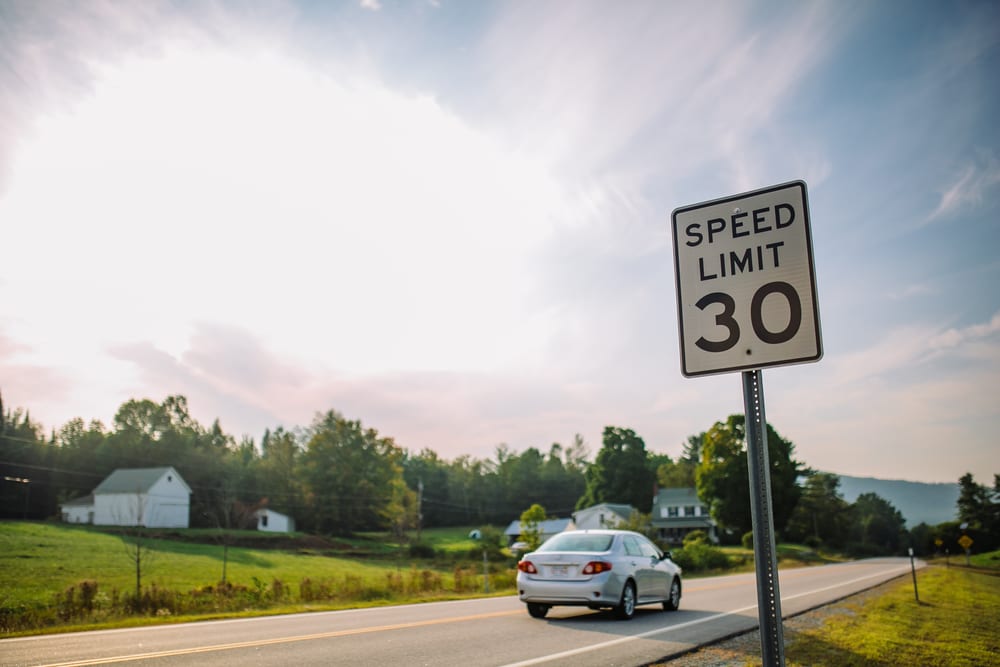

Following is an overview of the laws, limits, and fines as they relate to speeding traffic violations in the state of New Hampshire.
Speed limits in New Hampshire
70 mph: I-93 from mile marker 45 mph to the Vermont border
65 mph: other freeways and turnpikes
55 mph: urban freeways and other highways
35 mph: rural residential districts and Class V highways outside cities and towns
30 mph: urban residential and business districts
The speed limit in school zones is 10 mph below the usual posted speed limit.
New Hampshire code on reasonable and prudent speed
Maximum speed law:
According to section 265:60 (I) of New Hampshire vehicle code, “A person shall not drive a vehicle at a speed greater than is reasonable and prudent under the conditions, having regard to the actual and potential hazards then existing.”
Minimum speed law:
Sections 265:64 (I) and 265:16 (II) state:
“A person shall not drive a vehicle at such a slow speed as to impede the normal and reasonable movement of traffic.”
“A person driving at less than the normal speed of traffic shall drive in the right-hand lane then available for traffic or as close as practicable to the right-hand curb or edge of the roadway.”
Due to variations in speedometer calibration, tire size, and margins of error in speed-detecting technology, it’s uncommon for an officer to pull a driver over for going less than five miles above the speed limit. However, technically any amount over can be considered a speed violation so best practices are to stay within the limit.
New Hampshire has a mix of absolute and prima facie speed limit laws. This means in some cases, a driver may be able to argue that they were driving safely even if exceeding the posted limit. Or, a driver may choose to go to court and claim their innocence based upon one of the following:
The driver may oppose the determination of speed. In order to claim this defense a driver must know how his or her speed was determined and then learn how to disprove its accuracy.
A driver may claim that an emergency situation caused the driver to break the speed limit in order to prevent injury or damage to themselves or others.
The driver may claim a case of mistaken identity. If a police officer clocks a driver speeding and subsequently has to find them again in traffic, it’s possible that they could make a mistake and pull the wrong car over.
Penalty for exceeding the speed limit in New Hampshire
First-time violators may:
Be fined up to $1000
Have their license suspended for up to 30 days
Penalty for reckless driving in New Hampshire
There’s no set speed at which violating the speed limit is considered reckless driving. That determination depends upon the circumstances of the violation.
First-time violators may:
Be fined between $250 and $500
Have their license suspended for up to 60 days
Violators may be required to complete a driver's improvement course, which could reduce their points.



